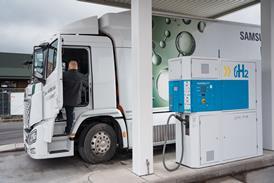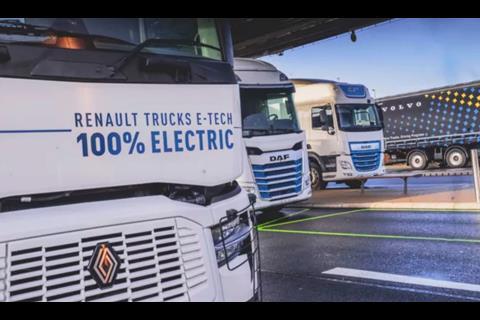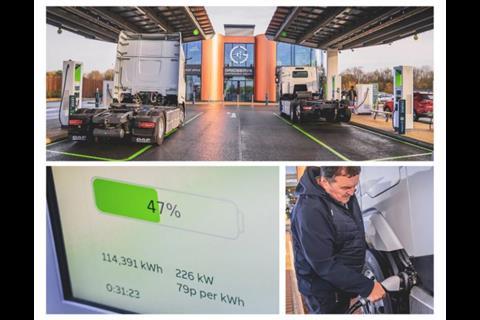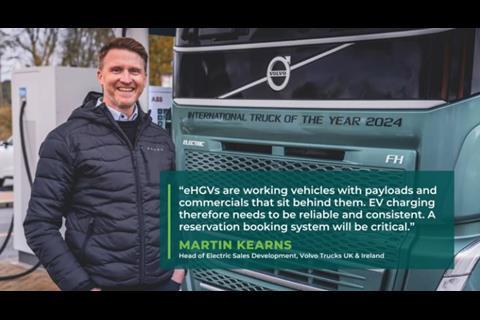GRIDSERVE recently welcomed members of its truck manufacturer consortium to the Braintree Electric Forecourt to kick off the design phase of eHGV charging infrastructure as part of the Electric Freightway programme.
This project, funded by the Department for Transport and Innovate UK, brings together prominent truck manufacturers such as DAF Trucks, Volvo Trucks, and Renault Trucks for the first time to advance eHGV charging infrastructure.
During this collaboration, manufacturers are evaluating the charge power levels of their models and reviewing the layout and form factors of existing EV charging bays.
Although the Braintree Electric Forecourt was not originally intended for trucks, it features one 360kW-capable High Power charger in a layby that can accommodate a full articulated tractor and trailer combination. Interestingly, the eHGV tractors and trailers can fit beneath the EV charging station’s solar canopy.
This field research lays the groundwork for designing both public and depot-based EV charging infrastructure, which GRIDSERVE will install during the first two years of the Electric Freightway’s seven-year project lifespan. The plan includes over 200 High Power 350kW-capable chargers across key motorway service areas, more than 10 commercial depots, and at least two 1-megawatt capacity chargers.
“We want to understand how best to support the 140 electric trucks that will be involved in the project, and how to provide these myriad use cases with the appropriate infrastructure that will make them work seamlessly for their operators,” explains John Whybrow, eHGV Programme Director for GRIDSERVE. “This is the benefit of having such breadth and depth in our consortium.”
“Braintree is a great facility for electric cars, but now we need the same sort of focus on trucks if we want to move forwards,” argues Ron Smith, Driver Trainer at DAF Trucks.
“The needs of truck drivers are very different to car drivers,” says Martin Kearns, Head of Electric Sales Development at Volvo Trucks UK & Ireland. “These are operational vehicles with payloads and commercials that sit behind them, so charging has to be reliable, consistent and a reservation booking system is going to be critical.”
Simon Calado, Energy Transition Manager for Renault Trucks UK, added “As a brand, we [Renault Trucks] probably have the broadest portfolio of electric vehicles on offer, ranging from light commercials all the way up to 44 tonnes. You can easily cover 300kms with battery electric trucks on sale today, but operators need proof that those ranges are repeatable in the real world. An evidence-based approach from the Electric Freightway project will support the argument for battery electric HGVs.”





















